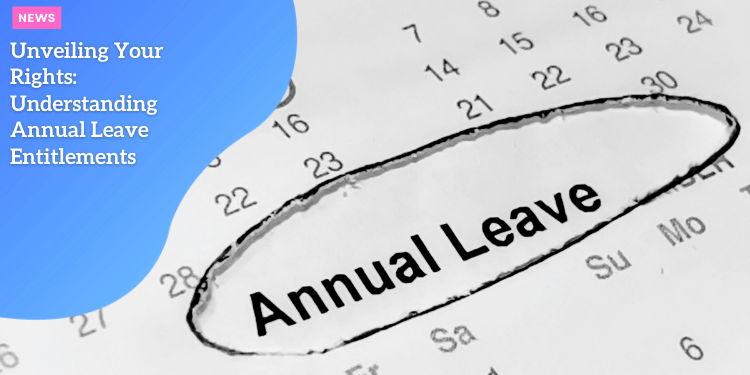Unveiling Your Rights: Understanding Annual Leave Entitlements

Anúncios
Demystifying Your Downtime: A Comprehensive Guide to Annual Leave Entitlements
In today’s fast-paced and increasingly interconnected world, where the line between work and personal life can easily blur, taking the time to disconnect from work and focus on self-care is more important than ever.
Annual leave is not just an entitlement, but achieving a healthy work-life balance is essential.
It allows employees to rest, recharge, and return to their roles refreshed, productive, and motivated.
Yet, many employees either underuse or misinterpret their annual leave entitlements, leading to missed opportunities for relaxation, improved wellbeing, or even financial compensation.
This comprehensive guide aims to clarify your rights regarding annual leave and provide actionable insights to help you maximize your downtime.
Understanding Your Annual Leave Entitlement
In many countries, including Australia, annual leave entitlements are mandated by law.
For full-time employees, the legal minimum is generally four weeks, or 20 days, of paid annual leave each year.
This entitlement is accrued progressively, meaning it builds up throughout the year based on the time you’ve worked, and it doesn’t expire at the end of the year, giving you the flexibility to carry over unused leave into the next year.
This ensures that employees have enough time to disconnect from work without being forced to take leave within a rigid timeframe.
Part-Time and Shift Workers
Employees working part-time are also entitled to annual leave, but it is calculated on a pro-rata basis, depending on how many hours they work compared to full-time employees.
For example, if you work 20 hours a week, you will receive half the leave entitlement of a full-time worker.
Shift workers, depending on the specifics of their workplace agreement, may be entitled to additional leave.
In some industries, shift work can be more taxing on the body, which justifies a longer period of annual leave to recover.
As a result, certain shift workers may receive up to five weeks of paid leave annually.
Casual Employees
Casual employees, however, do not accrue paid annual leave under Australian law.
Casual workers typically receive a casual loading – an additional percentage added to their hourly rate to compensate for the lack of paid leave.
While casual employees may not be entitled to paid annual leave, it’s still important to understand the specific terms outlined in your contract as different workplaces may have their own policies.
Additional Leave Days
Employers are legally required to provide the minimum entitlement, but they may also offer additional leave days as a benefit.
These additional days, which are often negotiated through employment contracts or collective bargaining agreements, can provide extra flexibility and time off.
Always check your contract or speak with your human resources (HR) department to ensure you’re aware of any extra leave days available to you.
Planning Your Time Off: Taking Leave
One of the greatest benefits of annual leave is its flexibility.
Employees can choose when to take their leave, allowing them to plan breaks that suit their schedules, whether that means taking it all at once for a longer vacation or spreading it out throughout the year.
In many workplaces, there are specific procedures for requesting leave, which might include submitting formal requests in advance.
Requesting Leave in Advance
Andrew Jewell, Principal of Jewell Hancock Employment Lawyers, emphasizes the importance of submitting leave requests well in advance.
Giving your employer sufficient notice allows them to make arrangements for coverage during your absence and avoid any disruptions in the business.
Advanced planning also ensures that your leave doesn’t conflict with other colleagues’ time off or busy periods within the company.
Many companies have specific timelines for submitting leave requests – for example, requiring you to submit your request a minimum of four weeks prior to the scheduled leave date.
Understanding these deadlines and adhering to them will help ensure that your leave request is approved without any issues.
Peak Seasons and Leave Requests
It’s important to note that certain times of the year, like the holiday season, may be busier than others in your industry, and your employer might have specific policies regarding when leave requests can be taken.
Some workplaces even impose “blackout periods” during busy times where taking leave is not possible.
For example, if your company experiences a significant uptick in business around Christmas or the end of the financial year, it may be difficult to take leave during that time.
However, even during busy periods, employees still have the right to request leave. If an employer denies your request, they must provide a reasonable explanation for doing so.
Understanding the reasons behind your employer’s decision can help mitigate any frustration and guide you in reapplying for leave during a less busy time.
Can Your Leave Request Be Rejected?
While employees have the right to request annual leave, there are situations where an employer may refuse a leave request.
According to Australian law, an employer can only reject leave requests on reasonable grounds.
These grounds may include business needs, such as staffing shortages during critical times, or situations where the employee’s absence would create significant operational challenges.
However, employers cannot arbitrarily reject leave requests or refuse them without justifiable reasons.
If your employer denies your request, they should provide a clear explanation.
If you feel your request was denied unfairly, you can seek advice from HR, a union representative, or an employment lawyer.
The Fair Work Ombudsman provides resources on how to handle such disputes and understand your rights as an employee.
Directed Leave and Unused Leave
In certain cases, an employer may have the right to direct an employee to take annual leave.
This typically occurs when an employee has accumulated an excessive amount of unused leave.
For example, if you have more than four weeks of accrued leave, your employer may ask you to take some time off. Similarly, company-wide shutdowns, such as during the Christmas period, may also require employees to take leave.
What Happens to Unused Leave Upon Termination?
If you leave your job, whether through resignation, dismissal, or retirement, you are entitled to receive payment for any unused annual leave.
The amount of leave paid out will depend on the number of unused days or hours you have accumulated.
This can be an important consideration when transitioning between jobs, as the payout can provide a financial cushion during your time off between roles.
Taking a Break Means Taking a Break: Your Rights During Leave
The purpose of annual leave is to allow employees to taking time to rest and recharge is vital for preserving your well-being and enhancing overall productivity away from work both physical and mental wellbeing.
During your leave, you are not expected to work, and the Fair Work Ombudsman explicitly prohibits any work performed while on leave.
Even if you decide to check in on work emails or do some light work, it does not impact your annual leave entitlement.
Taking work-related calls or handling urgent tasks during your leave is generally discouraged, as it defeats the purpose of taking time off to rest.
If you do end up working while on leave, your employer is still obligated to honor your full leave entitlement.
When in Doubt, Seek Clarification
If you’re ever in doubt about your leave entitlements, it’s crucial to ask for clarification.
Employers are obligated to explain leave policies and provide details regarding how annual leave is accrued and utilized.
It’s in your best interest to stay informed about company-specific policies and the legal framework that protects your rights.
The Fair Work Ombudsman offers a wealth of information on annual leave entitlements, including FAQs, detailed guides, and even a leave calculator.
If you are ever unsure about your rights or need further guidance, don’t hesitate to contact your HR department, seek advice from a union, or consult with an employment lawyer.
Conclusion: Prioritize Your Right to Rest
Taking your annual leave is not just a privilege; it’s a necessity.
Maintaining a healthy balance between work and personal life is essential for long-term success well-being career success, and annual leave plays a critical role in maintaining that balance.
By understanding your entitlements and planning your time off wisely, you can ensure you’re getting the most out of your breaks.
Remember, downtime is vital for your overall wellbeing, and by prioritizing your right to rest, you can return to work more focused, motivated, and ready to excel in your role.






